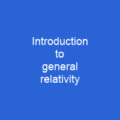Albert Einstein: A Life of Genius and Discovery
Albert Einstein (1879-1955) was a German-born theoretical physicist widely regarded as one of the most influential scientists. He developed the theory of relativity and made important contributions to quantum mechanics.
The Early Years
Einstein’s journey began in Munich, Germany, where he attended St. Peter’s Catholic elementary school from the age of five. At eight, he was transferred to the Luitpold Gymnasium, where his thirst for knowledge and understanding of physics and mathematics blossomed. His father, Hermann Einstein, and uncle Jakob moved their family to Italy in 1894, seeking new opportunities. This move marked a significant turning point in young Albert’s life.
A Formative Event
One of the most formative events in Einstein’s youth was when he was sick in bed and his father brought him a compass. This simple act sparked a lifelong fascination with electromagnetism, leading to profound insights that would shape his future work. As he later reflected, “Something deeply hidden had to be behind things.” This curiosity laid the groundwork for his groundbreaking theories.
Education and Early Career
In 1895, at sixteen, Einstein sat the entrance examination for the federal polytechnic school in Zürich, Switzerland. Despite failing the general part of the test, he excelled in physics and mathematics. He enrolled in a teaching diploma program there, where he met Mileva Marić, who would become both his friend and lover. Their relationship was marked by infidelity but remained significant throughout their lives.
Patent Office and Breakthroughs
Einstein secured a post as an assistant examiner at the Swiss Patent Office in 1902 with the help of Marcel Grossmann’s father. During his time there, he found that patent applications on his desk included ideas for a gravel sorter and an electric typewriter. This period was crucial; it allowed him to develop his theories without the pressures of academia.
The Annus Mirabilis
In 1905, Einstein published four groundbreaking papers that would change the course of physics. These included his special theory of relativity and the photoelectric effect. This year is often referred to as his “annus mirabilis” (miracle year) for its transformative impact on science.
Later Career and Contributions
Einstein’s career took him from teaching positions in Switzerland and Germany to becoming a full professor at the University of Zurich. He later joined the Prussian Academy of Sciences, where he made significant contributions to molecular theory and quantum mechanics. His work on general relativity was tested during a total solar eclipse in 1919, with observations by Sir Arthur Eddington being consistent with his calculations.
Political Activism
Einstein’s political views evolved over time. He became an intellectual icon after the confirmation of his theory of relativity and was deeply involved in civil rights activism. He joined the National Association for the Advancement of Colored People (NAACP) and campaigned for civil rights, considering racism America’s “worst disease.” His letters to W. E. B. Du Bois and his visit to Lincoln University further underscored his commitment to social justice.
Unified Field Theory
Einstein spent much of his later life working on a unified field theory, which aimed to unify gravitation and electromagnetism. Although unsuccessful, this pursuit was part of his broader vision for a more complete understanding of the universe’s fundamental laws.
Legacy and Impact
Einstein’s legacy extends far beyond his scientific achievements. He is often depicted as an absent-minded professor in popular culture but was also deeply involved in political activism and social issues. His contributions to science, philosophy, and society continue to inspire generations of scientists and thinkers.
Conclusion
Albert Einstein’s life and work have left an indelible mark on the world. From his early fascination with a compass to his groundbreaking theories that reshaped our understanding of space and time, Einstein’s legacy continues to influence science and society. His commitment to truth, justice, and intellectual curiosity serves as a beacon for future generations.
You want to know more about Einstein?
This page is based on the article Einstein published in Wikipedia (retrieved on November 24, 2024) and was automatically summarized using artificial intelligence.








